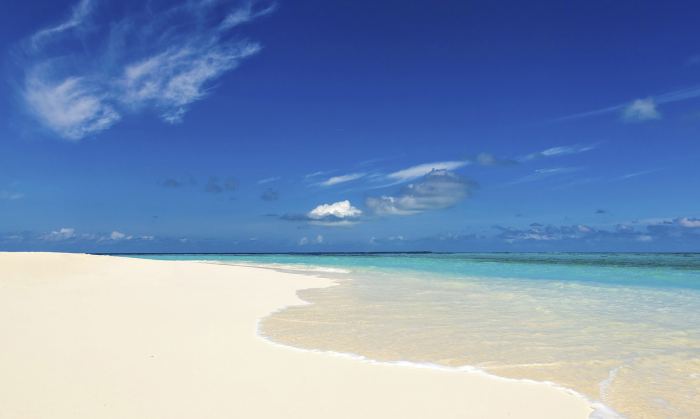North Sea Foundation takes plastic soup off the menu and the beaches!
As at least 8 million tons of plastic enters the world’s oceans every year, the battle to clean up the sea is well underway. Floris van Hest, director of the North Sea Foundation, outlines the NGO’s plans to rid the seas of the plastic, making sure that ‘plastic soup disappears off the menu’.
Floris, could you tell readers about the North Sea Foundation?
“The organization has existed for some 40 years. Essentially, we are the voice of the North Sea because it cannot defend itself. Our vision is to have a clean and healthy sea and we are working on four specific goals: a waste-free sea, a sea with sufficient marine protected areas, sustainable fisheries and ensuring that the foreseen growth in offshore wind energy happens in an ecologically responsible way.”
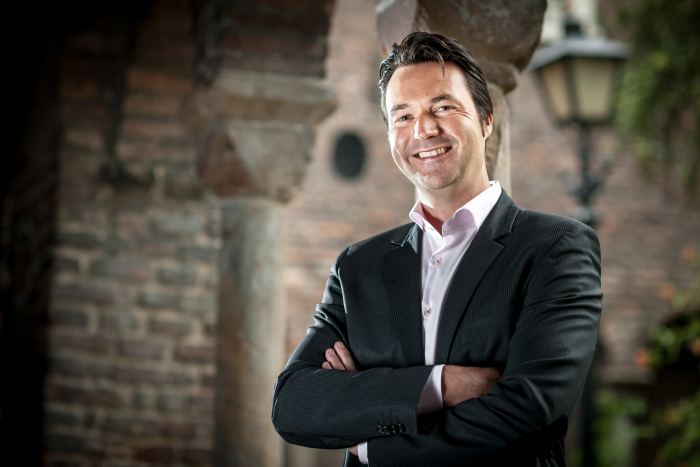
Floris van Hest — director of the North Sea Foundation
“Our role as an NGO is raising awareness — getting the issues high on the political and business agenda, and in the minds of the public. We cannot make all of the changes ourselves — a government has to implement a waste management system for example — but we can inspire others to change. It is important to add that the organization wants to engage in constructive dialogue and work on innovative solutions with industry, governments and the various stakeholders.”
For every 3 kilograms of fish there will be a kilogram of plastic In our ocean in 2025 if this rate of pollution continues!
The so-called ‘Plastic Soup’ problem and having a waste-free sea is a vital part of your work isn’t it?
“Yes, indeed. However, I would like to stress that we recognize that plastic is a great material and has huge benefits to people and nature, just think of clean water, food safety etc. It is unthinkable to imagine a world without plastic. It is cheap, extremely durable and light, but therein lies the issue. These qualities are also creating the pollutant problem. Plastics last pretty much forever and the ocean is an enormous ‘sink’ for all of the waste.”
“There are actually a lot of misconceptions about Plastic Soup. You sometimes hear that there are enormous, plastic floating islands the size of Texas in the sea, which you can even stand on. Instead, factors such as UV radiation and the seawater cause the plastic to disintegrate into tiny particles that don’t degrade and they are therefore saturating some areas of the sea. Algae form on these particles which are in turn eaten by the fish and shellfish. This is how toxic substances can make their way into the food chain. Plastic Soup is not a phenomenon that exists only far from the North Sea. When we take measurements in the water column we also find plastic particles here.”
The Boskalis Beach Cleanup Tour is a huge awareness exercise. It gets to the hearts of people and inspires them.
How big is the problem?
“Until recently we didn’t really know about the scale of the problem. In February, a study carried out by Dr Jenna Jambeck, an environmental engineer of the University of Georgia, and her team found that a staggering 8 million tons of plastic are coming into the oceans annually. As plastic particles don’t degrade it is estimated that currently around 130 million tons of plastics are in the oceans. If this rate of pollution continues there will be around 250 million tons in the oceans by 2025, or in other words, for every 3 kilograms of fish there is a kilogram of plastic in our ocean! These are very disconcerting statistics.”
“And around 60-70% of this plastic soup is generated by five Southeast Asian countries, which don’t have proper waste management systems in place. Although the amount is quantified now, a lot of research still needs to be done.”
Can you explain more about the Boskalis Beach Cleanup Tour and how it helps combat plastic soup?
“The Boskalis Beach Cleanup Tour in the Netherlands is all about raising awareness of the plastic problem. The Netherlands is not in the top 10 of plastic polluters and this is partly because there is a relatively good waste management system in place. Many countries still have to build these systems. But even though we have a comprehensive waste management system, there is still very much an issue with plastic as we can see when it is continuously washed up on the beaches surrounding the North Sea. Therefore, the North Sea Foundation aims to tackle the problem at the source.”
“The Boskalis Beach Cleanup Tour started three years ago. We literally clean up the entire Dutch coastline during the month of August. During the third tour we had more than 2,000 volunteers. Boskalis couples the event with a Family Day, so many employees bring their family members along to help. During the Tour some 11 tons of waste was collected from a 350-kilometer stretch of coastline this year. This means more than 30 kilograms every kilometer or 400 to 500 pieces of litter every 100 meters of beach!”
“The Boskalis Beach Cleanup Tour is extremely valuable in that it has huge symbolic value — promoting awareness amongst the public, politicians and industry. And it also has an important knowledge component. We measure the amount of garbage turning up and record what types of items are found. In addition to the Boskalis Beach Cleanup Tour we also monitor four beaches four times a year in the different seasons using standardized protocols and we then compare the data. From the Tour and the ongoing monitoring we have identified the ‘Top 10’ pollutants. This allows us to launch specific campaigns around the individual plastic pollutant.”
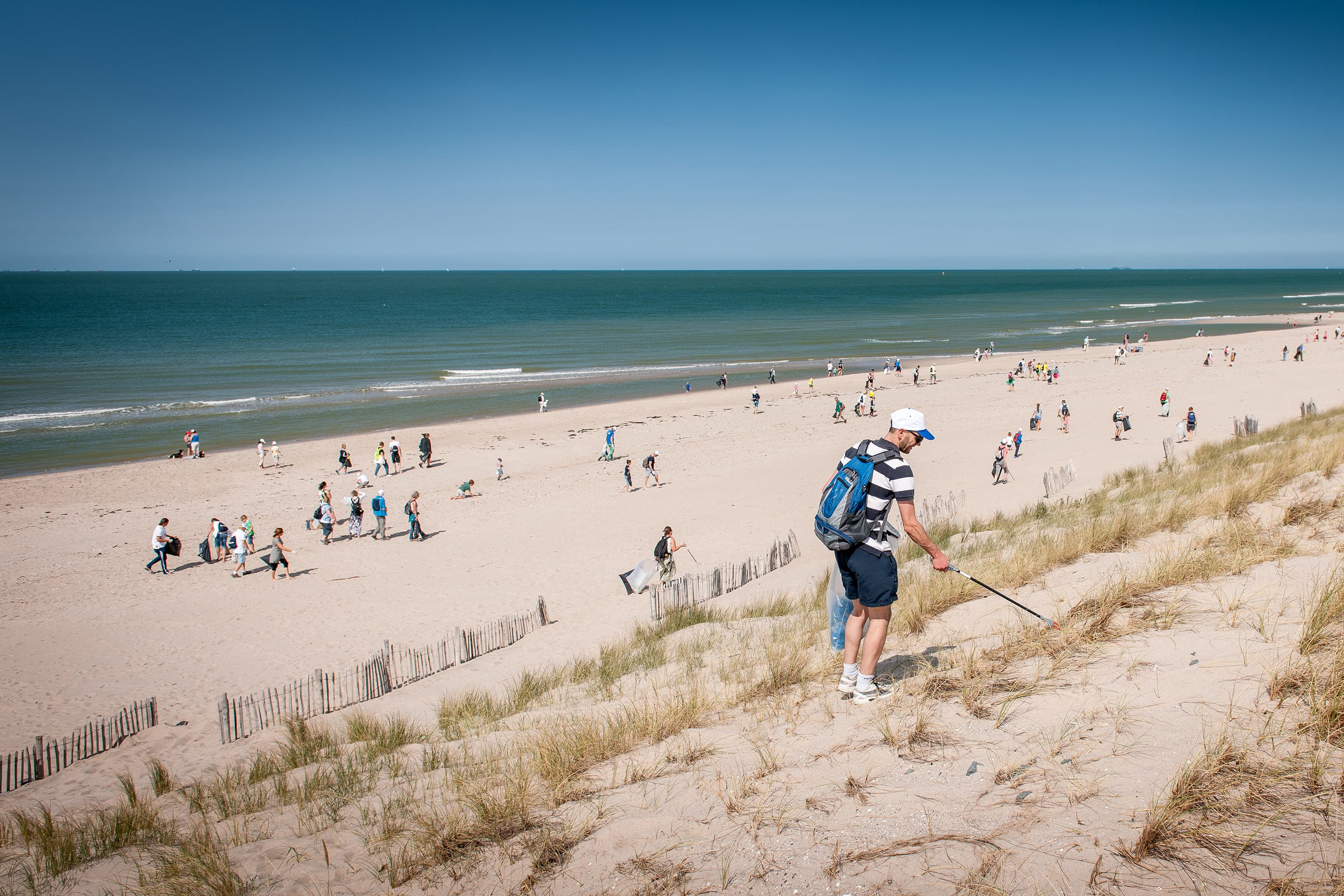
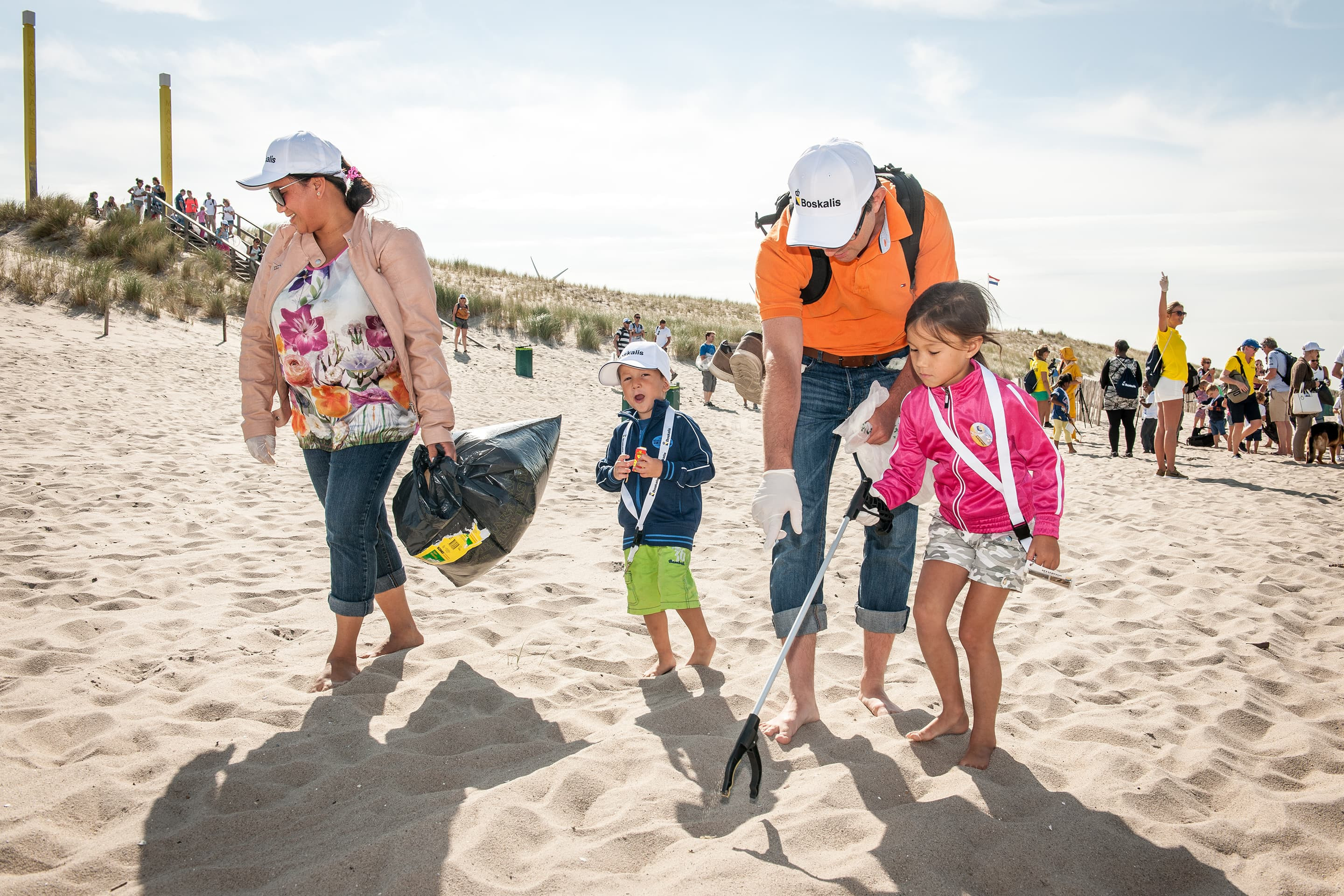
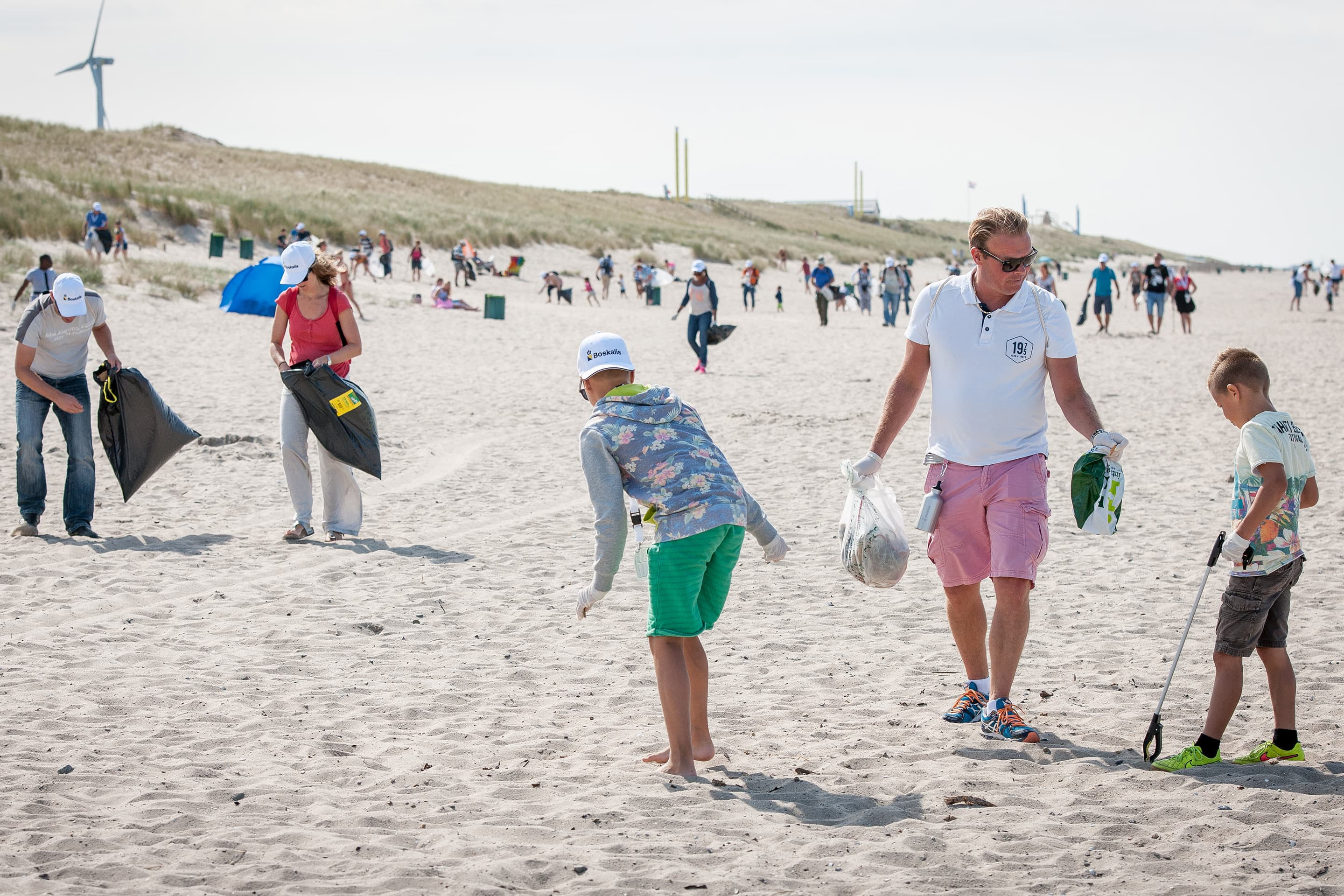
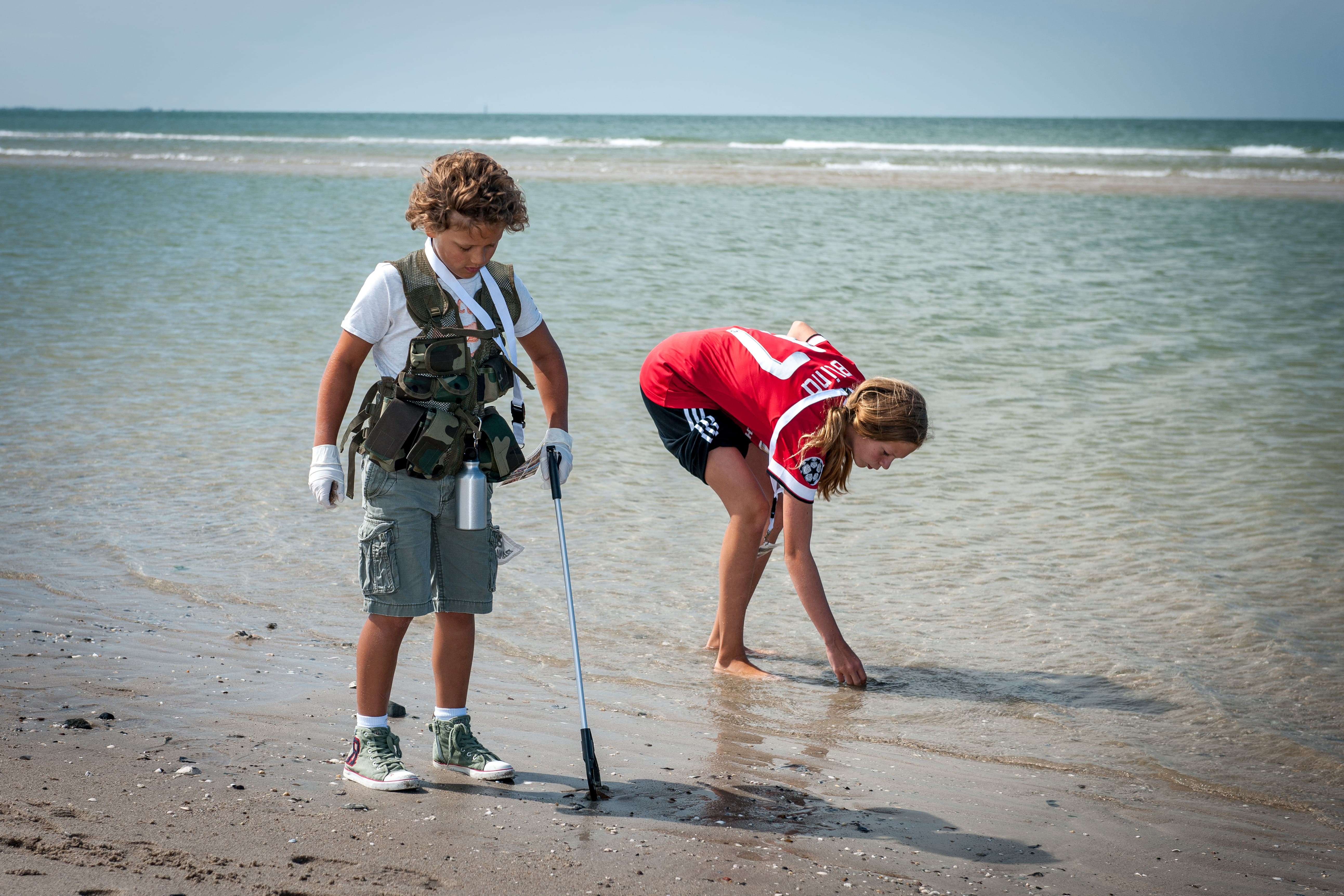
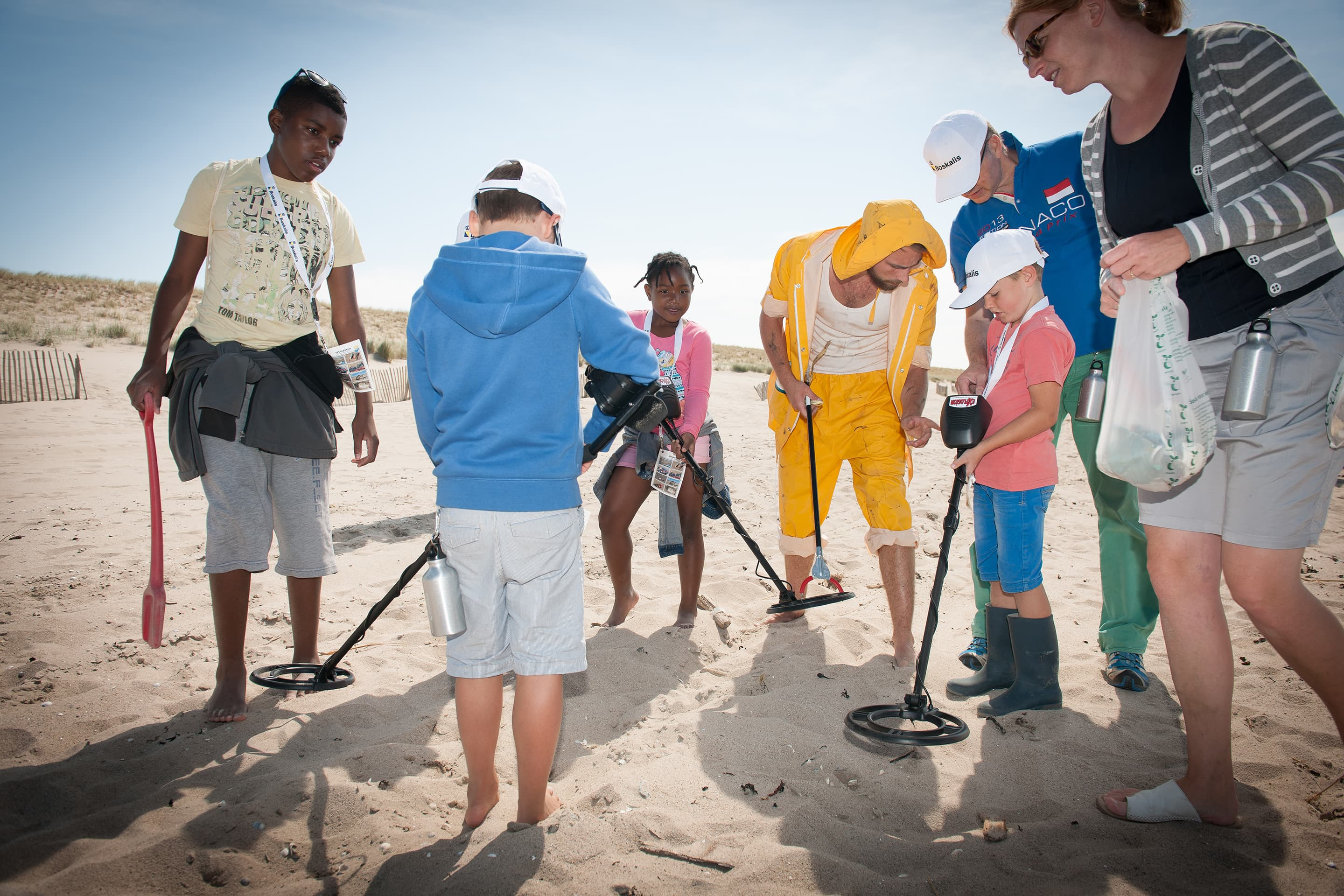
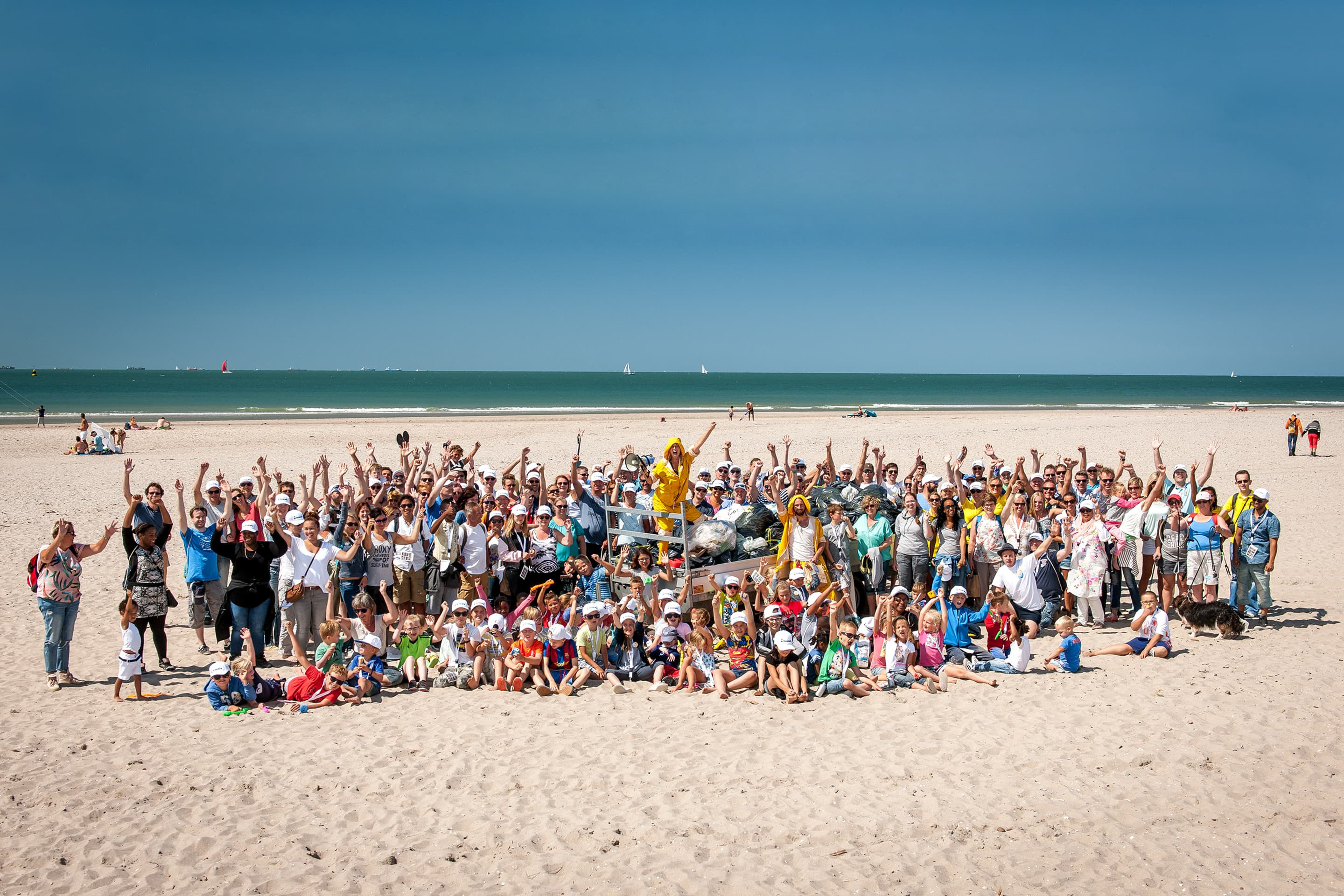
Can you outline some of the major pollutants and your specific campaigns?
“By far the number 1 pollutant found on the beaches is ‘nets and ropes’ and within this category the main items are so-called ‘dolly ropes’, which most Dutch fishermen use to protect their fishing nets when they are trawling along the sea floor. This has led to a project with the fishing industry and the government where we are seeking to find alternative solutions. The government has asked all the stakeholders to come together in so-called green deals to seek an alternative. It is hard to beat plastic of course, so we need innovators!”
“Another example of an item that we find a lot and which was also identified by the Boskalis Beach Cleanup Tour is plastic bottle tops. Many studies have examined dead seabirds and often their stomach contents contain bottle tops, which means the birds starve to death because they are not hungry anymore. Again, we are looking for solutions. ‘Is it not possible to have a system where the cap is attached to the bottle?’ We need innovators, so perhaps Boskalis can help here too.”
As well as tackling the problem at a local level, where your volunteers literally see the plastic waste going through their hands, does the NGO also take the issue to the policy makers?
“Yes, absolutely. Most environmental laws come out of the European Union. The North Sea Foundation joins with many of its contemporaries in other countries around the North Sea and we all have a joint lobby via ‘Seas at Risk’ in Brussels, so we have a unified voice to the decision makers.”
“And following on from the ambitious target set by the EU’s Marine Strategic Framework Directive aiming to have a ‘Good Environmental Status’ of the EU’s waters by 2020, the NGOs are advocating a target of a 50% reduction in marine litter in the North Sea by 2020. As a result of our joint advocacy the European Parliament is now calling for a similar target — a 50% reduction by 2025. The North Sea Foundation recognizes that this is a major challenge but we believe it is achievable following initiatives like targeting the top 10 pollutants and the Boskalis Beach Cleanup Tour. But difficult as the challenge might be, our bottom line is: no plastic waste in the sea!”
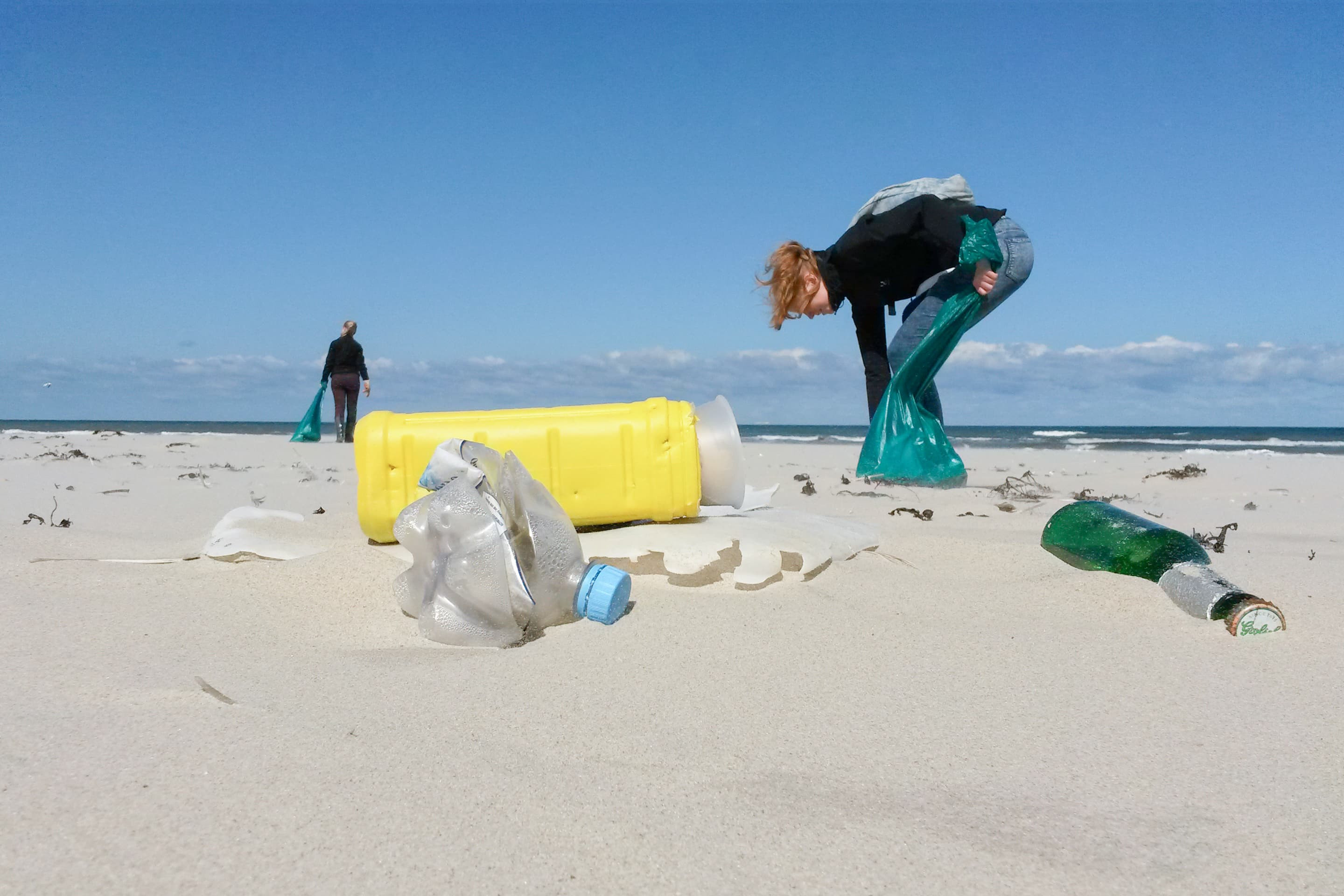
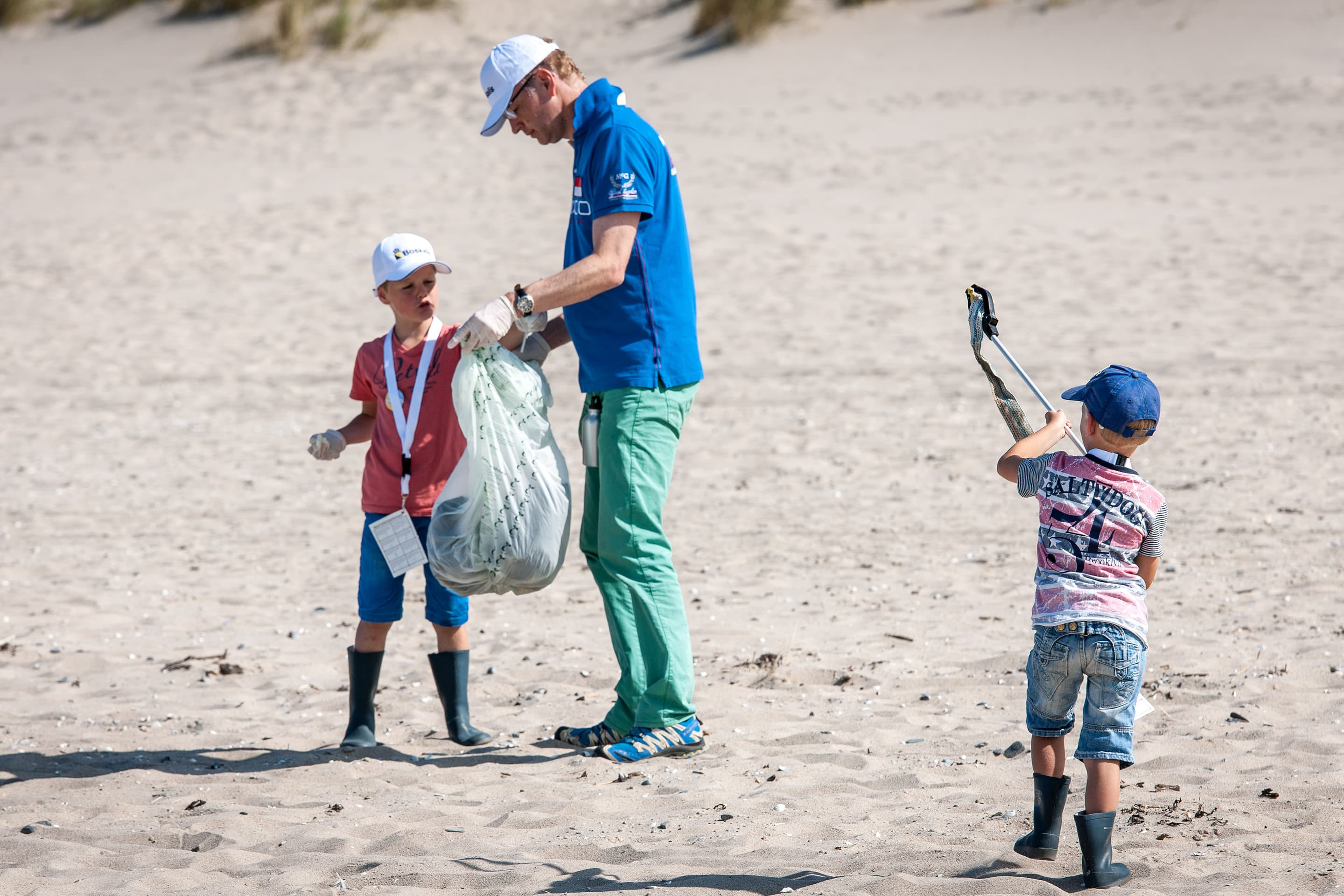
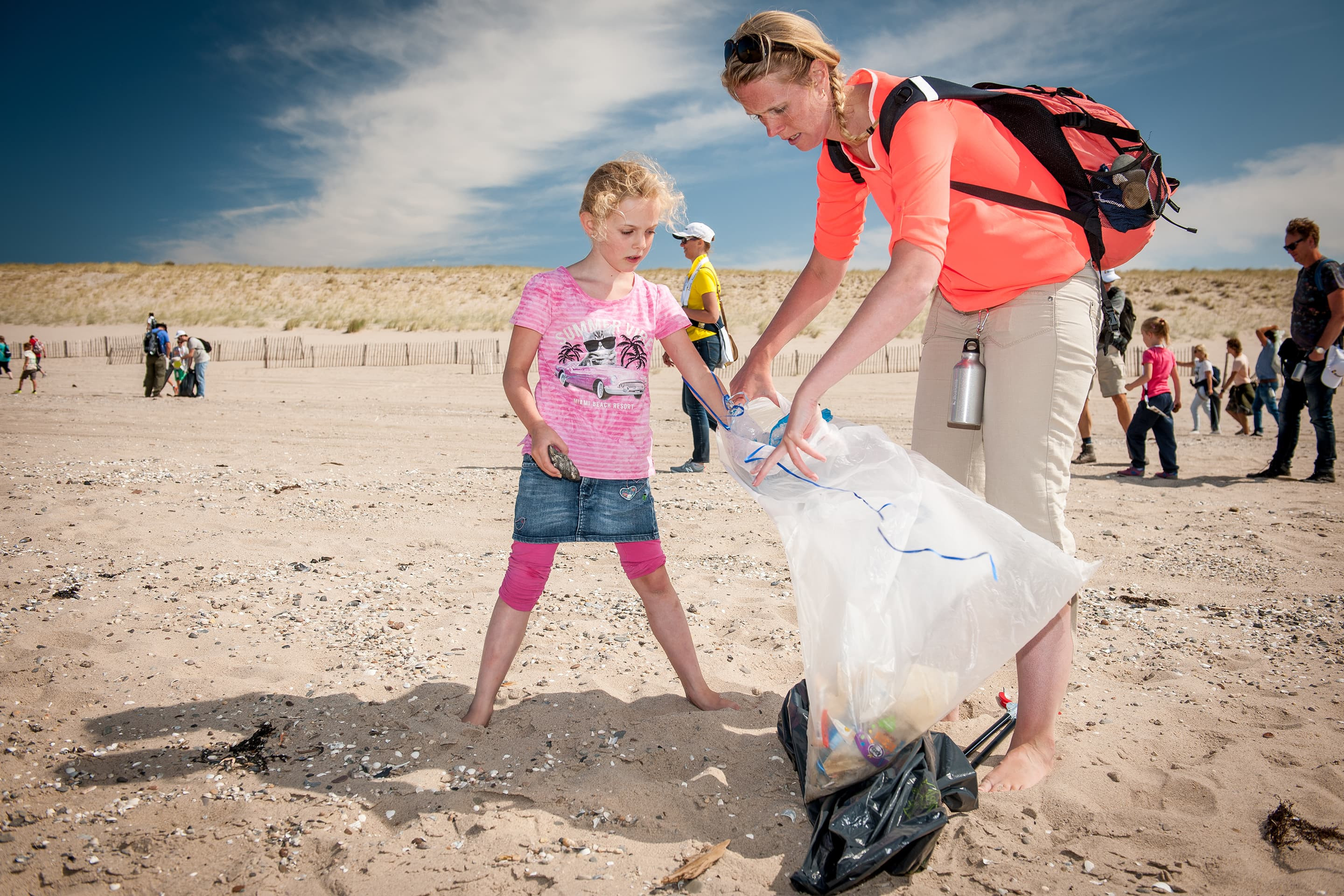
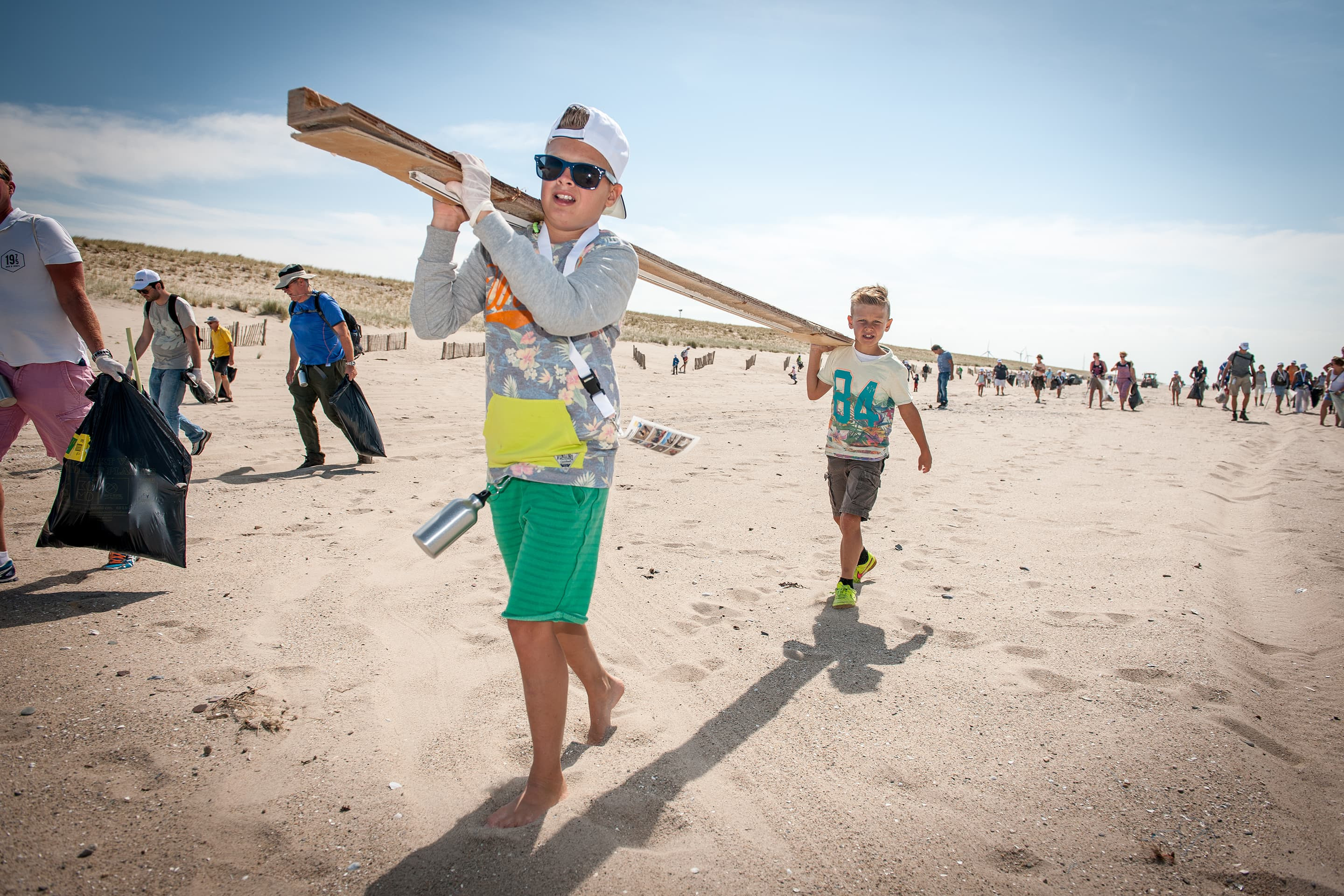
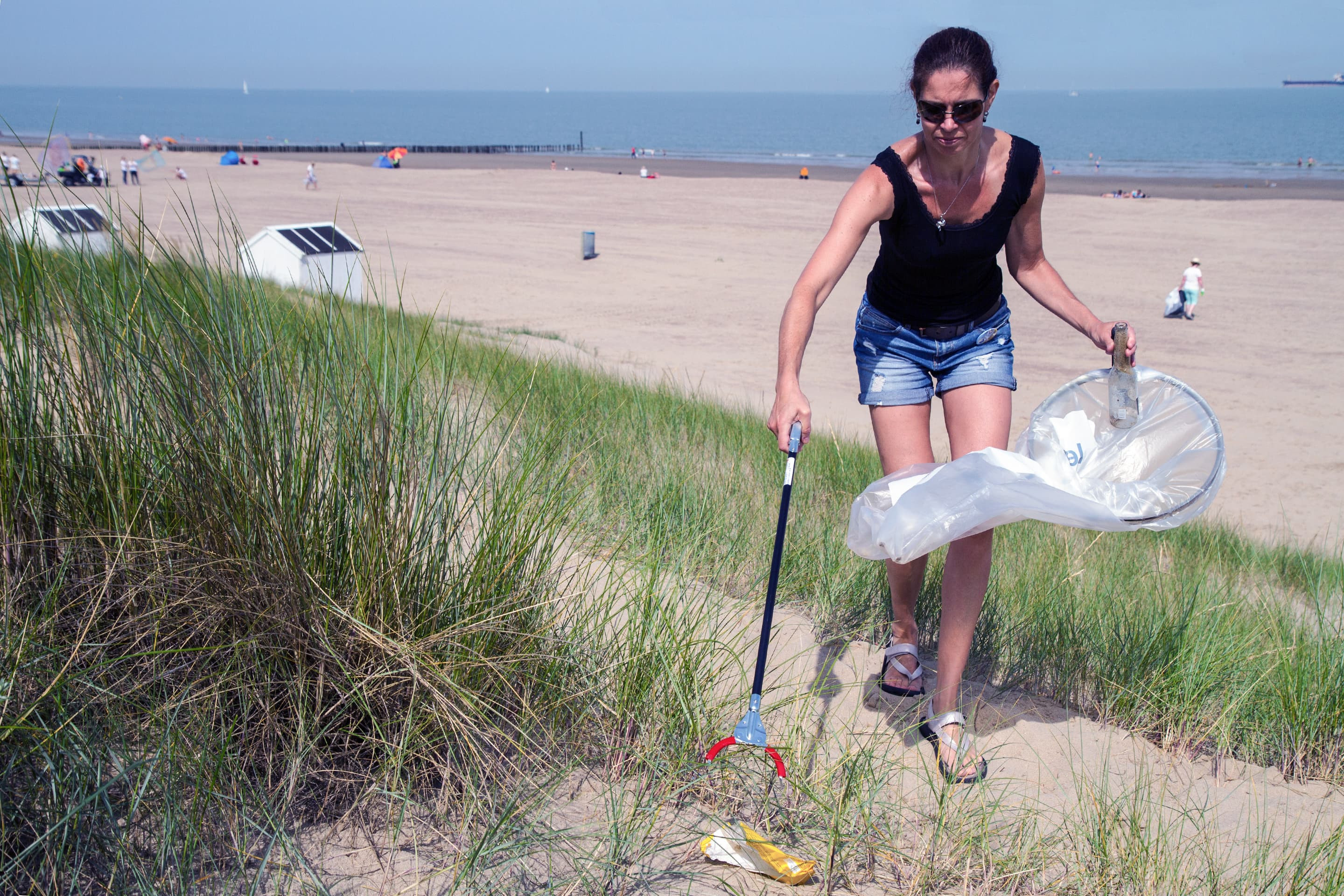
The Boskalis Magazine is called ‘Creating New Horizons’ — presumably your new horizon is a very literal one — healthy oceans and pristine beaches?
“Yes, indeed! Just after the last three campaigns, we are already seeing very positive benefits. People can change. The Boskalis Beach Cleanup Tour is a huge awareness exercise. It gets to the hearts of people and inspires them.”
